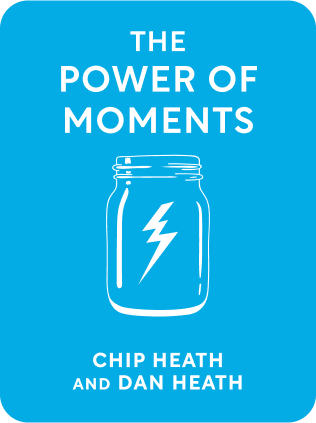

This article is an excerpt from the Shortform book guide to "The Power of Moments" by Chip Heath and Dan Heath. Shortform has the world's best summaries and analyses of books you should be reading.
Like this article? Sign up for a free trial here .
What is the peak-end rule? How does the peak-end rule determine what you remember about an experience?
The peak-end rule states that when people reflect on an experience, they tend to ignore the duration of the experience. Instead, they focus on two key parts: 1) the emotional peaks—the moments of strongest positive or negative emotion, and 2) the end of the experience.
Here is why the peaks always stand out in memory, blurring the rest as background.
The Peak-End Rule
It’s obvious why some events—like marriage, or having kids—would stand out on the timeline of your life. But what about smaller, simpler moments such as a particular family vacation or an outing with a friend?
Typically, the way you recall special memories is shaped by the “peak-end rule,” proposed by psychologists Barbara Frederickson and Daniel Kahneman (author of Thinking, Fast and Slow).
Imagine you spend a day at the beach with your kids. The drive is long, and it’s cloudy when you arrive. As you set up your umbrella and blanket, the sun finally peeks out. Around lunchtime, your kids are delighted to see a pod of dolphins playing just offshore. By the end of the day, everyone is exhausted, sunburned, and a little cranky. You pack up just before dark and spot an ice cream truck on the walk to the car, so everyone ends the day snacking on their favorite ice cream.
If you were asked about your day right after finishing your ice cream, you’d reflect on all the events of the day and chalk it up to a fairly average experience. However, if you were approached several weeks later and asked to reflect on the day, you’d likely give it a rave review. This is because, according to the peak-end rule, the parts of the day that will stand out in your memory are seeing dolphins (the peak) and eating your favorite ice cream with your kids (the end). All the other parts of the day—the cloudy sky, the sunburn, the long drive—fade into the background of these two positive experiences.
Longer Timelines Warp the Peak-End Rule
Kahneman’s research shows that the peak-end rule holds when an experience is relatively short and has a definite beginning and end—a day at the beach or a week of camping, for example. However, the Heaths explain that when it comes to recalling long-term experiences, the peak-end rule changes.
Peak: Peaks retain their importance—that is, one or two exceptional moments can make a mundane experience stand out in your memory as wholly amazing.
- For example, you start a new job. Your company sets up an incredible orientation program, and in your seventh month you receive the sales team’s “MVP Award.” Looking back on this first year, you might report it as a great experience, though most of your time was spent on meetings, dull tasks, or filing paperwork. The mundane day-to-day events fade into the background of several exceptional events.
End: On the other hand, endings tend to lose their importance and blur with beginnings. When you left college and headed into your first job, it was both an ending and a beginning. When it comes to long-term experiences, it makes more sense to think in terms of transitions rather than beginnings and endings.
This builds to the Heaths’ main point: When you think back on your life, you won’t recall every moment, nor will you consider your life’s “average” happiness. Your memory will naturally highlight positive peaks and transitional experiences.

———End of Preview———
Like what you just read? Read the rest of the world's best book summary and analysis of Chip Heath and Dan Heath's "The Power of Moments" at Shortform .
Here's what you'll find in our full The Power of Moments summary :
- How to make everyday experiences meaningful and memorable
- A look at the four elements that create meaning
- How your senses can play a role in elevating everyday moments






